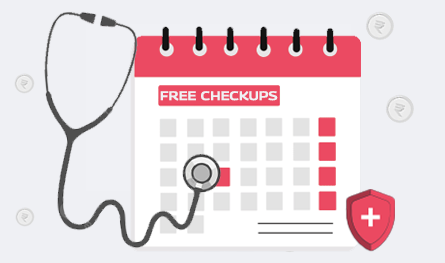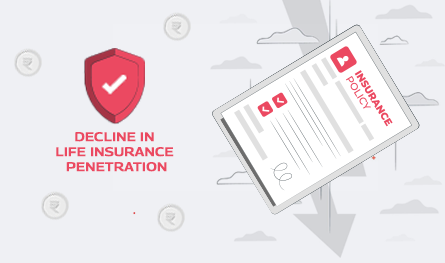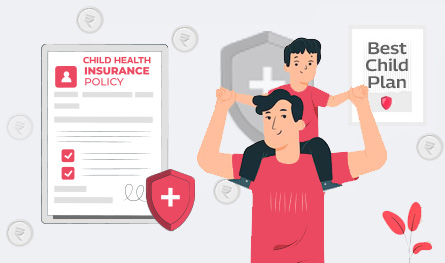Chilling Effects – Understanding the Impact of Freezing-Cold Temperatures on Your Body
.png)
Winter is the time of the year that most people eagerly await because of the festivities, celebrations, and holidays, as well as to enjoy the cool weather. However, do you know that extremely cold temperatures can constrict your blood vessels and may thicken your blood? It may cause shallow breathing among people, especially caused by cold, dry air that narrows the upper airways and causes trouble breathing in cold weather. Hence, it is important to understand the effects of cold, harsh weather and accordingly wrap up in proper warm clothes to avoid the extreme temperature and its effects.
.png)
The Body’s Response to Cold
When exposed to extreme cold weather, your body shows two different psychological responses:
1. Immediate Reactions:
Peripheral Vasoconstriction and Shivering are the symptoms that the body shows against the cold temperature as an immediate reaction. In vasoconstriction, the blood vessels become narrow, caused by small wall muscles. If this condition happens, it slows or blocks the blood flow. This condition can be either mild or severe and may be the result of any disease, psychological conditions, etc. On the other hand, shivering is an instinctive response of the body to produce heat during extreme exposure to cold environments.
2. Long-Term Adaptations:
The human body uses several mechanisms to limit heat loss to defend body temperature. Increased metabolism by tightening blood vessels is a way to decrease heat lost during cold exposure and keep it warm. Muscle acts as a source of the rise in metabolic heat production in the body during winter.
Brown fat is a body fat that keeps people warm in extreme cold conditions. This fat contains energy that helps the body to burn calories. Hence, Brown Fat’s production occurs in cold regions, activating it just before shivering starts.
3. Effects on Skin and Extremities:
A drop in temperature also affects the skin. With the cold temperatures and lack of humidity, the human skin finds it difficult to retain moisture. This makes the skin itchy, dry, and cracked in some parts of the skin, like lips, heels, etc.
Frostbite is a common concern faced by people under freezing temperatures. Frostbite makes your skin numb. You may experience a loss of feeling and color in the affected areas like the nose, cheeks, fingers, toes, etc.
There are several stages of Frostbite, such as frostnip, superficial frostbite, and deep frostbite.
1. Frostnip – This is a mild form of frostbite where you may experience numbness in some areas due to continued exposure.
2. Superficial frostbite – Here, you may experience slight changes in skin color.
3. Deep frostbite – In this stage, frostbite affects all layers of skin and tissues underneath, making the skin look white and blisters may appear.
Prevention Tips to Avoid Frostbite Damage
- Wear loose and comfortable layers of warm clothes, including a top layer of wind and waterproof for going outdoors
- Take special care to protect your feet and toes with socks. If required, wear two pairs of socks to avoid the cold
- Avoid the exposure of your head and ear to the extremely cold breeze with a warm and heavy woolen cap
- Wear warm mittens on your hands to protect them from frosting
- Wear proper boots and shoes to stop snow from getting inside your shoes
- Finally, don’t forget to stay hydrated, as dehydration can increase the risk of frosts.
Skin Dryness and Irritation
The level of moisture in cold air is less. As the environment surrounding you becomes dry, the skin becomes drier. Moreover, using heaters to warm your interiors can also increase skin dryness, making it scratchy and uncomfortable.
Dermatologists suggest that protecting your hands, face, and feet is important in extremely cold weather to avoid dry skin.
To prevent extreme dryness and irritation of the skin in the cold winter, you can strategies a skincare routine. Here are some tips:
- Always keep your skin moisturized during the day as well as at night
- Use sunscreen even inside the house or in cloudy weather conditions
- Avoid hot showers as they may strip off further moisture content of your skin
Impact on Respiratory System
Cold and dry air also affects the respiratory system of many people, especially those with chronic lung diseases. The dry air of cold winter aggravates the airways of humans, leading to conditions like wheezing, coughing, and cold weather breathing problems. It may induce constriction or bronchial tightening, leading to cough and bronchial irritation. It may also aggravate conditions like chronic obstructive pulmonary disease (COPD) and asthma.
Further, potential respiratory challenges are also faced by people in the winter because of breathing in cold air. Winter season intensifies the likelihood of getting cold-induced asthma or winter asthma. This condition is caused by an asthma patient’s extreme exposure to cold and dry air. Cold-induced asthma may enhance the chances of asthma attacks among such people.
To prevent it, you must understand your bodily condition and manage the symptoms accordingly. Also, try to stay indoors as much as possible.
Influence on Cardiovascular Health
When the temperature dips down in winter, the blood vessels of humans become narrow to limit the loss of heat in the body. However, this narrowing of blood vessels, termed vasoconstriction, may create extra pressure in the blood circulation of the rest of the body. This requires the heart to work harder to pump the needed blood supply. This may increase heart rate and blood pressure, causing stress on the heart. Although it is your body’s normal response against the cold, people with existing heart conditions like angina should exercise precautions to avoid untoward health conditions. They need to be extra careful to stay warm. Prolonged exposures to very cold temperatures may also cause Hypothermia.
Hence, it is important to recognize symptoms and take emergency measures to stay fit and healthy during winter.
Safety Measures in Cold Temperatures
Here are some safety measures for cold temperatures to avoid extreme bodily conditions:
1. Proper Dressing:
It is important to dress warmly in winter to shield your body from the cold. Choosing the right clothing and wearing layers is important here. Avoid wearing cotton and linen in the winter season, and wear fabrics like polyester fleece, wool, and polypropylene.
Also, remember to incorporate the layering technique for better comfort. Wear enough layers to keep yourself warm. However, don’t wear layers that make you uncomfortable while performing your duties. Wear loose-fitting clothes, as tight ones may constrict blood vessels. Don’t forget to protect your head and ears. Wear warm socks and shoes to keep your feet warm.
2. Importance of Hydration:
Along with keeping yourself warm, it is equally important to keep yourself hydrated. Your body dehydrates when it doesn’t receive enough fluid to work properly. Dehydration may cause dizziness, headaches, and fatigue. So, drinking warm liquids is important. Avoid drinking alcohol or too much caffeine. Choose warm water, milk, green tea, and energy drinks. Aim for at least 2 liters of water daily to stay hydrated in the cold weather.

Author Bio
Paybima Team
Paybima is an Indian insurance aggregator on a mission to make insurance simple for people. Paybima is the Digital arm of the already established and trusted Mahindra Insurance Brokers Ltd., a reputed name in the insurance broking industry with 21 years of experience. Paybima promises you the easy-to-access online platform to buy insurance policies, and also extend their unrelented assistance with all your policy related queries and services.
Other Health Insurance Products
Latest Post
.png)
Do you want to know about the myths of online vs. offline buying of a bike insurance policy? Let’s learn about the most common misconceptions pertaining to getting bike insurance coverage.

.png)
Comprehensive bike insurance policy is an insurance plan offering all-inclusive coverage to your two-wheeler including coverage against Third-Party liabilities as well as Standalone Own Damages. Comprehensive plans allow policyholders to buy Add-On covers to widen the protection available under the plan. Hence, it is one of the most recommended two-wheeler insurance plan.


You probably don’t wait for your phone to completely crash before charging it, right? So why wait for a health emergency to start thinking about your well-being? That’s where preventive healthcare steps in. It’s about staying one step ahead of health issues, spotting trouble early, and handling it before it gets expensive or exhausting.
With preventive healthcare insurance, you can actually use your policy to stay healthy instead of just fixing things when they break. From free health check-ups to wellness rewards, modern health plans are becoming your health partner, not just your crisis manager. So, if you thought insurance was boring paperwork, it’s time to meet its smarter, more proactive side. Let’s explore how it all works and why your future self will thank you for paying attention now.


When was the last time you thought about getting a life insurance policy? If your answer is “I will get to it someday”, you are not alone. Despite India growing as one of the fastest expanding economies, life insurance penetration across the nation has remained surprisingly low. Life insurance penetration fell slightly to 2.8% in FY24, down from 3% in the previous year.


As any parent will tell you, kids come with two things: endless energy and absolutely no sense of self-preservation. From scaling chairs and tables like mountaineers to catching germs within a five-mile radius, kids really know how to keep everyone on their toes. Now, it is understandable you are worried. As much as we would love to wrap our small ones in cotton wool and keep them safe forever, real life has other plans.




